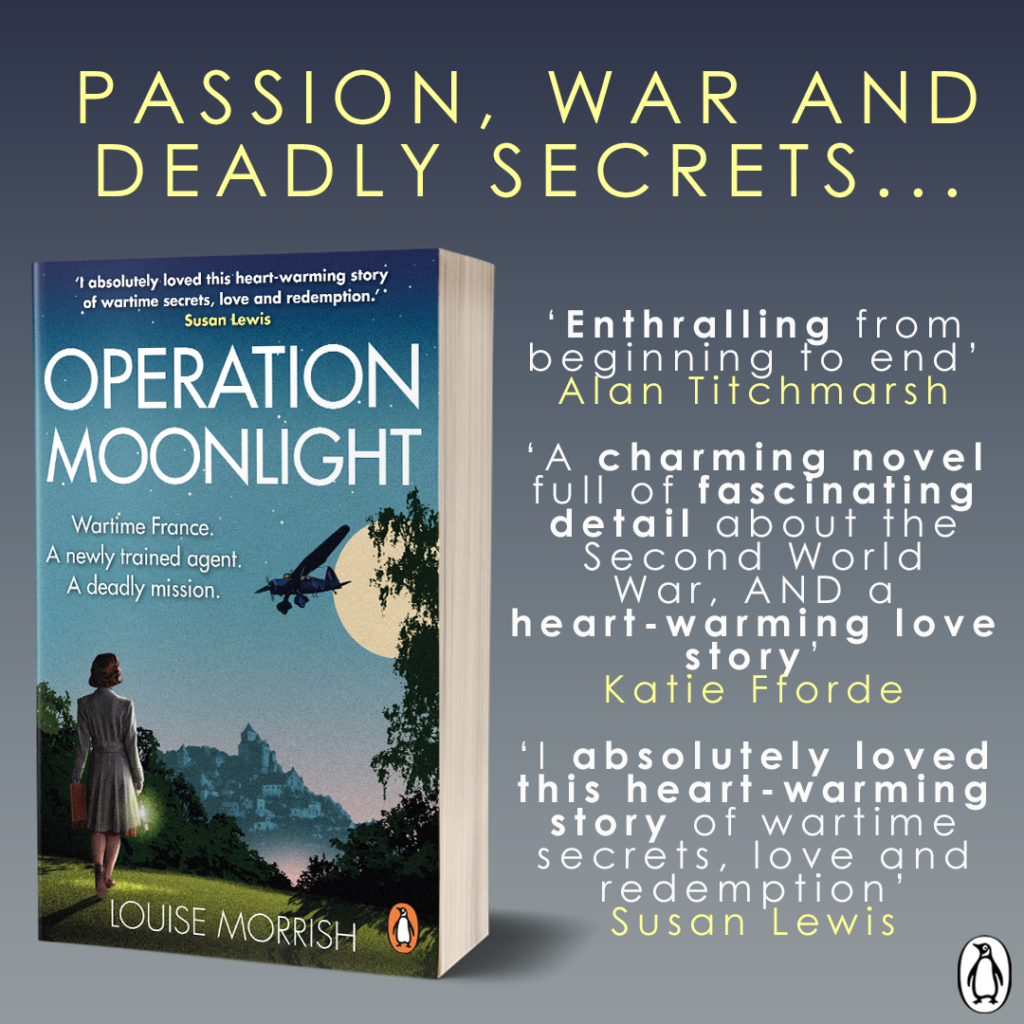

- Have you ever travelled as research for your book?
Yes, I visited many of the places that my main character does her secret agent training (Betty works for the Special Operations Executive in the Second World War). In Feb 2020, just before the first Covid lockdown, and as Storm Dennis battered the UK, I travelled on the Caledonian Sleeper train from my home in Hampshire to a place called Arisaig 800 miles away in the far North West of Scotland. It was here that the real secret agents did much of their paramilitary training. With the help of an SOE expert called Henrik, I walked the beaches where the agents were taught to blow up old railway tracks, I visited the locations where they honed their combat skills, and I trekked the wild and desolate moors where they learned how to survive off the land.
- How did you come up with the title for your book?
Operation Moonlight was originally titled The Coffin Club. The original plot involved Betty attending a social club for centenarians called The Coffin Club. But this was changed in a later draft, and one of my sons came up with the new title – Operation Moonlight. It’s the name of the mission Betty undertakes in Occupied France, and my editor agreed it sounded suitably mysterious.
- How do you come up with character names for your stories?
Character names are crucial, and I spend a lot of time choosing them. Sometimes, a character’s name changes during the drafting of a novel, but in Operation Moonlight I had all the characters’ names decided early on. Betty is named after my maternal grandmother who was a huge inspiration for the novel. And a lot of the other characters’ names are similar to real life people in the Special Operations Executive, just changed slightly. So, for instance, my character Lena Watkins is based on a real woman called Vera Atkins who worked for the Special Operations Executive and was instrumental in helping agents through their training.
- How important was professional editing to your book’s development?
A complete game changer. I was incredibly fortunate to have Selina Walker from Century as my main editor, and she was so patient and helpful. She showed me how to hone my sentences, and how to ensure that the characters came alive on the page, and I will be forever grateful to her expertise. I’m a different writer now that I’ve gone through that process with her, but I know I will always be learning new things too.
- How much research did you need to do for your book?
A lot, but that’s par for the course with historical fiction. I first found about the female agents of the Special Operations Executive when I was researching for another book I was writing. I love it when I accidentally stumble across interesting research facts! I spent a long time reading about the war before I began writing Operation Moonlight – I think I ended up reading more than 200 books in the end. I also visited several museums, like Tangmere in West Sussex and Beaulieu in Hampshire and the Imperial War Museum in London.
- If you could be mentored by a famous author, who would it be?
Sarah Waters, because not only is she a consummate story teller, but the language she uses is exquisite, and I love every single word she writes.
- If you were to write a spin-off about a side character, which would you pick?
There are two characters I would like to follow up. The first is Tali, and her adventures with Jo on the narrowboat. I’d love to know where she goes and what happens. And the second is Doris. I would love to know what really happened to her in France, and then her life in Canada after the war.
- What comes first for you – the plot or the characters – and why?
A chicken and egg question for me. The two tend to arrive at the same time. I can’t think of a plot without knowing at least the main character, but I can’t have a main character on their own without knowing at least roughly what they are going to do. With Operation Moonlight, the character of Betty came first (because of my gran) but was very closely followed by the plot (a 100 year old woman hiding a dark secret from the war).
- What do you like to do when you’re not writing?
Because writing a novel involves many hours sitting at a desk, when I’m not writing I like to move. My hobby is trail running, and I’m lucky to have some beautiful countryside to run through here in Hampshire. I’m a slow runner, but I can run long distances. For instance, a little while ago I ran 33 miles in one go, but it took me several hours!
- What inspired the idea for your book?
The genesis for Operation Moonlight came in 2018, when my friend Liz told me about a 110-year-old-woman she knew who was determined to become the oldest person in Britain (this lady now holds this record, btw). Her stalwart attitude reminded me of my late maternal grandmother, who was born in 1908 and survived two world wars, the 1918 flu epidemic, breast cancer and a bigamist first husband. I then discovered the incredible stories of the female secret agents in the Special Operations Executive, and began to think what if…what if a centenarian was hiding a very dark secret from the war years, when she’d been a secret agent…and then Operation Moonlight was born.